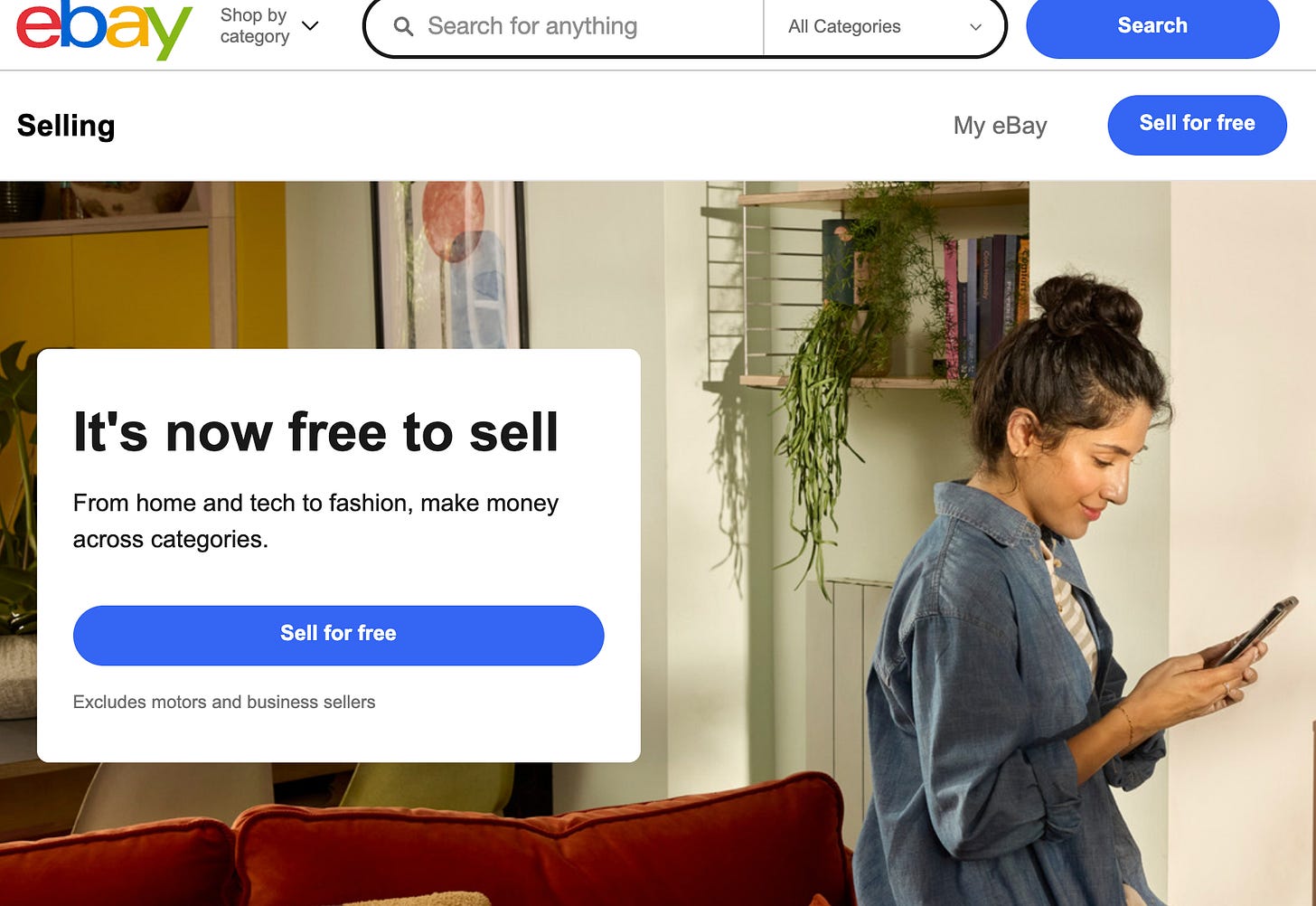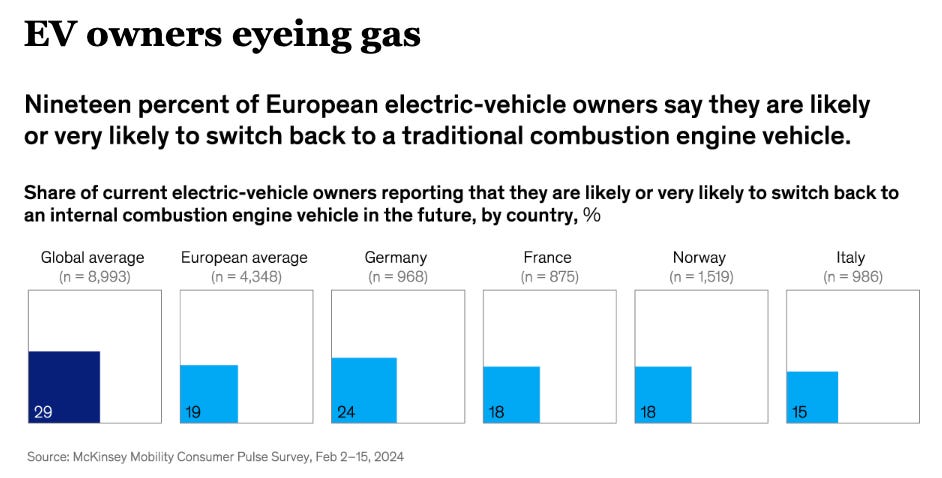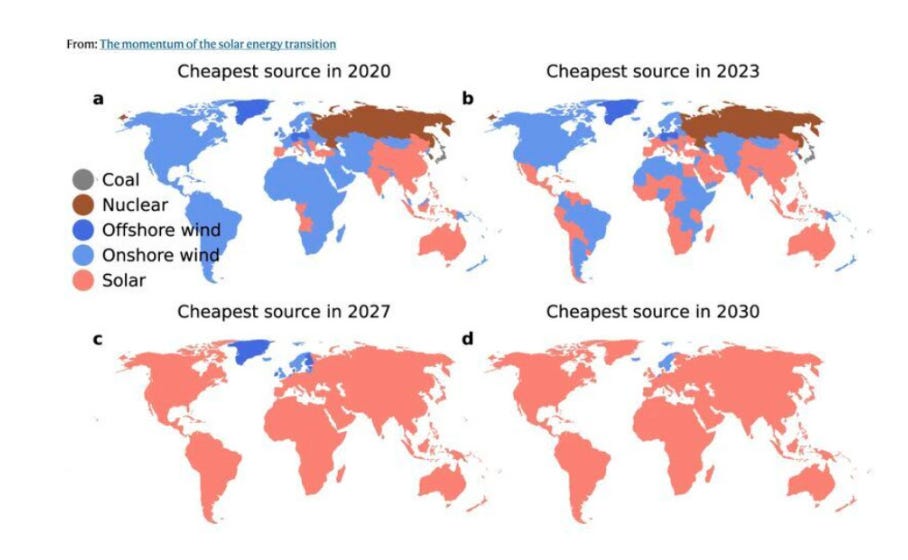After exploring Consumer Health & UK Consumer, we’re now turning to the Consumerisation of Climate.
At Eka, we think a lot about Sustainable Consumption. In recent weeks, we’ve seen more Sustainable Consumption signals including eBay’s slashing of UK seller fees to keep up with competition, rumours of Vinted’s secondary round fuelled by continued resale growth, or even Rent the Runway’s strategic pivot earlier in the year towards resale.
What better time to unpack the Consumerisation of Climate?
In this series, we’ll be exploring three sub-themes: (1) Circular consumption (i.e. Vinted, eBay, Rent the Runway), (2) Sustainable brands (i.e. Patagonia, Hylo, Oddmuse), and (3) Enabling Technologies (i.e. Hived, Axle, UseAgain).
We know that consumer supply chains contribute a high percentage of total environmental impacts across carbon, land & water use, and material use. In the UK, consumption emissions are close to 750 million tonnes of CO2 annually. There are a few ways to shift this.
Firstly, we can keep goods in circulation for longer so that our linear economy becomes more circular. This is what we’ll be exploring in this weeks edition. Other strategies include creating more sustainable brands from the outset which can better slot into a circular economy (i.e. designing goods with better inputs and with an ability to be recycled more easily).
Introducing circular consumption 🗞️
Linear vs. circular consumption: what’s the difference?
Linear consumption means that products are created using raw materials, purchased, and then discarded once their use has ended. This process not only consumes vast amounts of natural resources, but also generates significant waste, contributing to overflowing landfills and pollution.
Circular consumption offers an alternative. Instead of discarding goods after use, these are kept in circulation for as long as possible through reselling, renting, repairing, and recycling. This model reduces the need for new resources, lowers waste, and minimizes the environmental impact of production.
We lay out a few high profile examples of linear, re-use, and rental companies below across core consumer categories.
Peer-to-peer platforms: eBay, Vinted, Vinterior, Back Market, Depop
Peer to peer platforms connect individual buyers and sellers (typically consumers rather than businesses) to trade goods on a platform. Several P2P platforms are pioneering the circular consumption model by facilitating the exchange of secondhand goods and offering rental services. Examples include:
Monetising circular economy platforms
Peer to peer platforms are typically monetised using a combination of ads, seller fees, buyer fees, and posting fees. We’ll explore this in more detail in an edition later down the line. Ebay’s seller fees were in the press last week after the company decided to slash fees in response to competition.
Previously, sellers had been required to pay fees for each item they list, and eBay would take a percentage of the final sale price when the transaction is completed. You can still see the US site’s list price here based on the various consumer categories. Now, eBay lets sellers list items for free.
On the P2P sites, there is typically a lot of customer education which happens in the flow (this will be a recurring feature in other marketplaces). Here, eBay walks us through how we can list, price, and send our items.
Vinted has a very similar flow…
… and so does Vinterior.
Vinted, Vinterior, and eBay charge no seller fees now (note that Vinterior does charge 20% VAT to sellers). Vinted flags that paying VAT is not necessary if that you sell is less than the total that you buy. As mentioned, selling fees and gross take rates are quite complex, and will be the subject of a later newsletter edition (!).
The climate question: unpacking impact in circular consumption
Circularity enables three climate unlocks: carbon, water, and waste.
Carbon. By reducing the need to manufacture new products, circular consumption decreases the carbon emissions associated with production and transportation. For example, buying a secondhand piece of clothing or a refurbished electronic device can significantly reduce its carbon footprint compared to buying new. Vinted publishes an annual impact report highlighting their carbon mitigation.
Water. The fashion & electronics industry are notorious for their water consumption, specifically in textile production and rare earth mining. By extending the life of clothing & electronics through resale or rental, we can mitigate the water usage associated with creating new garments. Backmarket includes a section on this in their impact report.
Waste. Almost all consumer industries contribute significantly to waste. By extending the life of products, we can significantly reduce the amount of waste. See Ebay’s report on waste (upper RHS) below.
A note on reverse logistics
An important step in enabling circular consumption is reverse logistics. This is the process of moving products from their final destination back to the seller or manufacturer for reuse, recycling, or refurbishment. One example here is UseAgain, which helps retailers re-use their glassware.
We will be exploring this in more detail in Part 3 of this series - small foreshadowing!
Can mass consumption be circular?
As consumer awareness around sustainability continues to grow, the demand for circular consumption models is expected to increase. P2P platforms like eBay, Vinted, and Hurr are leading the charge by making it easier for consumers to buy, sell, and rent items in a way that reduces waste and lowers environmental impact.
Circularity (i.e. re-use, resale, rental) may not reach 100% of products, but we do believe that all products will need to be circular. We’ll be exploring what this looks like next week when we look at Sustainable Brands, which have traditionally operated in the linear economy but are shifting their models to be more sustainable.
As always, get in touch if you’d like to debate or chat around this article. I’m at estia@ekavc.com 👋
Week in Impact Articles ✍🏽
Monday: Trust and Reciprocity Are the Foundations of All Economic Systems.
Tuesday: Should You Trust Zillow’s Climate Risk Data?
Wednesday: Offshoring and AI Agents
Thursday: UK businesses asked to weigh in on new industrial strategy plans
Friday: Greenwashing: Many companies are repeat offenders, study finds
3 Key Charts 📊
1. Are EVs forever? Not for everyone.
2. Still progressing on the green cost curves
3. Batteries and installation rates
Eka Portfolio News 🎉
We’re extremely excited to announce our investment in Medly AI. See the announcement on their website.
Review of the Week 🗣️
Getting in Touch 👋.
If you’re looking for funding, you can get in touch here.
Don’t be shy, get in touch on LinkedIn or on our Website 🎉.
We are open to feedback: let us know what more you’d like to hear about 💪.




















